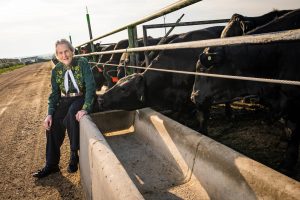CoBank issues report on solar and agriculture
Solar expansion could deliver the fastest, most affordable means for increasing the nation’s razor-thin energy reserves while driving new revenue streams for rural communities, but its success will be dependent on regional policy and site planning guidelines that ensure the local communities’ needs and interests are prioritized, CoBank, the Denver-based cooperative bank said in a report released Thursday.
The report, “Reassessing Solar Power’s Contribution” by Jacqui Fatka and Teri Viswanath, is the first in a series of upcoming research articles and part of The New Golden Age of Electricity digital hub about rising energy scarcity and securing future power supply for rural America,
“Concerns surrounding the pace of solar developments in rural areas and the implications for land use in agricultural regions are warranted,” said Viswanath, lead power, energy and water economist with CoBank.
“But there are guardrails to reduce the risk of land use tensions and other conflicts that would enable landowners and rural communities to capture the financial benefits of solar projects without displacing or disturbing agriculture farmland.”
“Regardless of the pace of solar development ahead, future installations will inevitably affect local communities so more engagement from the solar industry is needed,” said Viswanath.
“Strengthening partnerships with agricultural stakeholders and implementing effective land management strategies will be critical to mitigating challenges and gaining acceptance. Solar power is essential for meeting near-term demand growth, and rural America can play a key role in this while diversifying farm income and benefiting local communities through additional tax revenue.”







